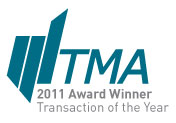Mental Health Courts
Mental Health Courts' Unique Approach
According to a 2006 report from the Bureau of Justice Statistics at the United States Department of Justice, 56 percent of state prisoners, 45 percent of federal prisoners, and 64 percent of local jail inmates were found to have a mental health problem. Specialized courts, called mental health courts, have been set up to deal with individuals entering the criminal justice system who have a mental illness or a mental disability. Currently, over 30 states have mental health courts in selected local jurisdictions within those states. Juvenile mental health courts, handling delinquency cases involving mentally ill juveniles, are planned in some states.
Treatment Instead of Jail
Mental health courts utilize a therapeutic justice model to place mentally ill misdemeanor offenders into treatment instead of jail. Defendants with a history of mental illness or those whose behavior suggests mental illness are diverted to the mental health court. The judge, the prosecutor, defense counsel, and treatment providers work together as a team in addressing a defendant's mental illness. The judge can sentence a defendant to treatment and medication which is supervised by the court. Public agencies and community organizations provide mental health services. Periodic status hearings are held to review an individual's progress and to evaluate the success of the treatment plan.
Voluntariness of Participation
Some concerns have been expressed about whether a mentally ill individual's participation in a mental health court program should be voluntary. Some groups believe that mental health courts use coercion to compel treatment because the judge has discretion to use sanctions for noncompliance with treatment programs.
Effectiveness of Mental Health Courts
Preliminary data indicates that mental health court participants receive more treatment than they received before entering the program. Also, participants have fewer bookings once they are enrolled in the mental health court program.
Copyright 2012 LexisNexis, a division of Reed Elsevier Inc.






